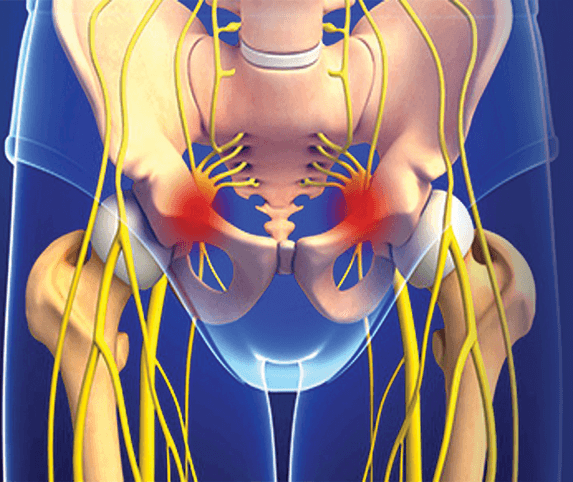Summarize This Article:
Summarize This Article:

Nerve compression syndrome, also known as nerve entrapment, occurs when inflamed tissue causes pressure around nerves in the peripheral nervous system, leading to pain, weakness, numbness, and discomfort. No matter if you’re one of the hundreds of thousands of people that deal with nerve compression already or are at risk of experiencing it, it’s essential to be aware of the symptoms and to know when it’s time to seek professional care.
Nerve compression syndrome is caused by many different factors, including repetitive motion or overuse of a limb, trauma or injury, arthritis, or even poor posture. Many signs and symptoms of nerve compression can mimic symptoms of other conditions, which is why we recommend seeing a specialist. Catching nerve-related conditions early on can reduce their chances of developing into something more severe, such as nerve damage or paralysis.

Certain symptoms of a compressed nerve are more common than others and may resolve on their own, such as:
Other symptoms are more severe and should be taken seriously. If you experience any of the following, seek professional medical attention as soon as possible.
Most of the time, nerve compression symptoms subside after 4-6 weeks. Some cases may take longer, especially if the symptoms are severe and require more invasive treatment. If nerve compression lasts more than six weeks, it can cause permanent damage to the muscles around the nerve or the nerve itself.
Regardless of whether you’re experiencing mild, moderate, or severe symptoms, it is always a good idea to speak with a neurologist. Neurologists are medical doctors who specialize in diagnosing and treating conditions related to the nervous system, including the brain, spinal cord, and peripheral nerves.
While every case is different, permanent damage is avoidable if symptoms are taken seriously and treated quickly. Treatment for a compressed nerve varies depending on the severity and frequency of your symptoms. For mild cases, a specialist might recommend rest or physical therapy to help relieve pain and exercise the muscles around the nerve. You may also be prescribed an anti-inflammatory like ibuprofen or a higher-strength medication like corticosteroids, Neurontin, or amitriptyline.
In severe cases that do not respond to other forms of treatment, your neurologist may recommend nerve reconstruction surgery. Nerve reconstruction surgery for nerve compression involves repairing or replacing damaged nerves to relieve the pressure that is causing entrapment of the nerve.
Genetics, activity level, medical history, pregnancy, and other lifestyle and health factors can increase your risk of having a compressed nerve. Nerve compression may also signal the presence of various common health conditions. A few to be aware of include:
Carpal tunnel syndrome (CTS) is a progressive condition where one or more of the major nerves in the hand becomes compressed. If not treated, it can cause severe permanent damage — even the complete loss of function of the hand. You’ll notice typical nerve compression-like symptoms, such as numbness or weakness in the hand. This condition also affects your fine motor skills, which are used to perform activities like gripping, typing, and writing.
Sciatica happens when the sciatic nerve, which begins in the lower back and continues through the pelvis and legs, becomes inflamed. It’s usually due to nerve compression from a herniated disk or muscle strain and causes numbness, weakness, pain, or tingling along the sciatic nerve pathway.
Pudendal nerve entrapment, also known as pudendal neuralgia, is a rare but highly impactful condition that causes long-term pelvic pain from damage to the pudendal nerve. It affects the pelvic and genital regions. Patients with pudendal neuralgia often experience sexual dysfunction, UTI-like symptoms, burning, aching, numbness, or severe pain.
If you are currently experiencing symptoms of nerve compression or have questions or concerns about other nerve-related conditions, visit our Neuropathy Center in NJ, PA, and NY to learn more.
.png)




